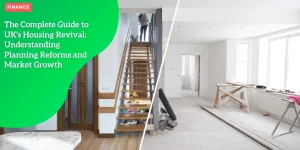27% of Parents Admit Breaking School Admission Rules: New Survey Reveals Growing Trend
Anúncios
Rising Trend in School Admission Rule-Breaking
Survey Reveals Increase from 24% to 27% of Parents Breaking Admission Rules in 2023
School admissions have always been a bone of contention for parents, and recent trends indicate that the pressure is mounting.
According to a Zoopla survey, there has been a notable increase in the number of parents who admit to breaking school admission rules.
Anúncios
The percentage has risen from 24% in 2022 to 27% in 2023.
This upward trend is concerning and highlights the lengths to which parents are willing to go to secure a place for their children in their preferred schools.
Anúncios
The survey was conducted among 1,019 UK parents who applied for school places within the last five years.

Breakdown of Rule-Breaking
Parents have employed various tactics to navigate the competitive landscape of school admissions. The breakdown of rule-breaking is quite revealing:
- 5% of parents admitted to outright lying on application forms or during the admission process.
- 12% confessed to telling ‘white lies’—small lies that are generally seen as less serious.
- 10% manipulated the system to their advantage by exploiting loopholes or bending rules.
Insights from Survey Data
These findings from Zoopla shed light on the strategies parents use to circumvent the established admission procedures. Notably:
- 🏫 30% of rule-breakers registered their children at a relative’s address closer to the desired schools.
- 🏫 25% exaggerated their religious beliefs or attendance at religious services.
- 🏫 Temporary measures were also common: 9% rented second homes, and 7% temporarily moved to catchment areas to qualify for a school placement.
Significance and Future Considerations
The increase in rule-breaking behavior underscores a growing desperation among parents to secure quality education for their children.
It also exposes systemic flaws that make it difficult for parents to play by the rules and still secure desirable school places.
This rising trend is a clarion call for policymakers to re-evaluate the school admission system and consider reforms that can alleviate the competitive pressure on parents and schools alike.
As we turn our attention to the tactics used by parents, it becomes clear that the lengths to which they go reflect broader issues in the educational system.
Common Tactics Used by Parents
When it comes to securing a spot in a desired school for their children, a significant number of parents are willing to bend or break the rules.
According to a recent survey by Zoopla, 27% of parents admitted to engaging in such tactics in 2023, an increase from 24% in 2022.
Here, we delve into some of the most common strategies used by these rule-breakers.
Registering Children at Relatives’ Addresses
A popular tactic, used by 30% of rule-breakers, involves registering their children at the address of a relative who lives closer to the desired school.
This strategy allows parents to claim residency within a more favorable school catchment area, thereby increasing their child’s chances of admission.
It’s a workaround that some parents see as a necessary measure to access better educational opportunities.
Exaggerating Religious Beliefs
Another common tactic, admitted by 25% of the surveyed parents, is exaggerating their religious beliefs or attendance at religious services.
Many schools with religious affiliations have admission criteria that favor children from practicing families.
By overstating their devotion or involvement in religious activities, parents hope to qualify their children for these coveted places.
Temporary Measures: Renting and Moving
Some parents take more drastic temporary measures.
About 9% of parents reported renting a second home within the catchment area of the desired school.
They might choose to lease a property just long enough to meet the residency requirements of the school’s admissions policy.
Similarly, 7% admitted to temporarily moving into the catchment area.
This often involves renting or even buying a new home, moving in long enough to secure the school place, and then relocating once the admission process is complete.
These temporary measures can be costly and disruptive, yet some parents find it justifiable to obtain a spot in a well-regarded school.
The tactics employed by parents reveal the lengths to which they will go to navigate and manipulate the current school admission system.
This trend highlights the intense competition for places at desirable schools and underscores the need for comprehensive educational reforms.
Addressing these issues is essential to ensure fair and equitable access to quality education for all children.
Impact of Private School VAT Changes
Rising Private School Costs and Rule-Breaking
The recent changes to VAT on private school fees have prompted 8% of parents to manipulate the system when they once could afford private education but can no longer do so.
The increased financial pressure caused by the removal of VAT relief on private school fees has, understandably, led many to seek alternatives in the public school system.
However, with this shift comes intensified competition, leading some parents to bend or outright break rules to secure spots in desirable schools.
Growing Competition for Public School Places
The removal of VAT relief on private school fees has not only made these institutions less affordable but has also increased the strain on public school admission.
With more families turning away from private options, the demand for quality public schooling has surged.
As a result, parents under financial stress or seeking the best possible education for their children are more likely to resort to deceitful tactics to ensure a spot.
Heightened Pressure on State Admissions
The correlation between rising private school costs and growing rule-breaking in public school admissions is apparent.
According to the survey, a portion of parents who manipulated the system did so because they intended to enroll their children in independent schools but found them unaffordable.
This pressure infiltrates the public school system, creating fierce competition and pushing parents towards rule-breaking behaviors.
Considering these factors, it becomes evident that the removal of VAT relief on private school fees has added layers of complexity and competition to public school admissions.
The result is escalating pressure on an already strained system, underscoring the need for broader educational reforms and fair access to quality schooling for all children.
Addressing Educational Inequality
The ongoing shift from private to public education demands an equitable solution.
There’s a glaring disparity where affluent areas see oversubscribed schools while others face low enrollment rates.
This inequality calls for a reevaluation of the current Ofsted rating system toward a more nuanced approach, ensuring fair evaluations.
Moreover, there is a pressing need for increased government investment to guarantee that every child has access to quality education irrespective of their socio-economic status.
With this scenario, it’s clear that finding solutions to educational inequality and enhancing the system’s fairness is imperative.
Educational Inequality and System Reform
Oversubscription in Affluent Areas
One of the most glaring issues in the educational system is the inequality stemming from oversubscription in affluent areas.
Popular schools in these regions often face immense demand, leading to fierce competition for limited spots.
Meanwhile, schools in less affluent areas struggle to fill seats, resulting in significant disparities in educational quality and access.
Need for a Nuanced Ofsted Rating System
The current Ofsted rating system in the UK has been criticized for its lack of nuance.
A simplistic rating can often paint an incomplete picture, failing to address the varying needs and circumstances of different schools.
There’s a growing call to replace this system with more refined evaluation methods that consider a wider range of factors.
This change could help parents make more informed decisions about their children’s education without resorting to rule-breaking.
Increased Government Investment
Educational experts advocate for enhanced government investment to ensure equitable access to high-quality education for all students, regardless of their socio-economic status.
By funding schools more generously and distributing resources more equitably, the government can help alleviate the current pressures that lead parents to break admission rules.
Equitable investment would support schools in less affluent areas, making them more attractive to parents and better serving their communities.
Transition
Addressing these systemic issues is crucial for creating a fair educational landscape where every child has equal opportunities to succeed, regardless of their background.






